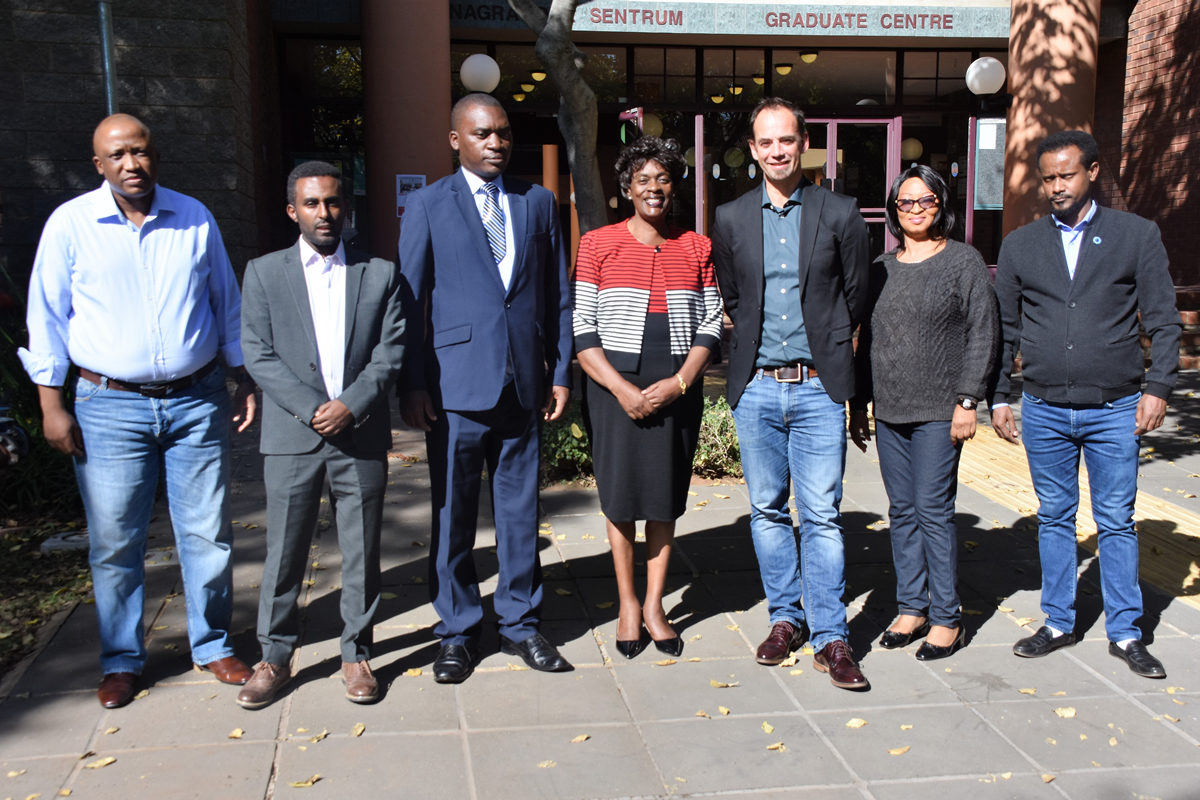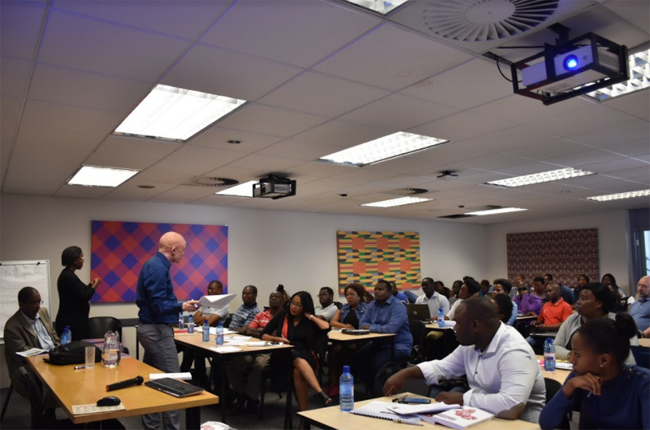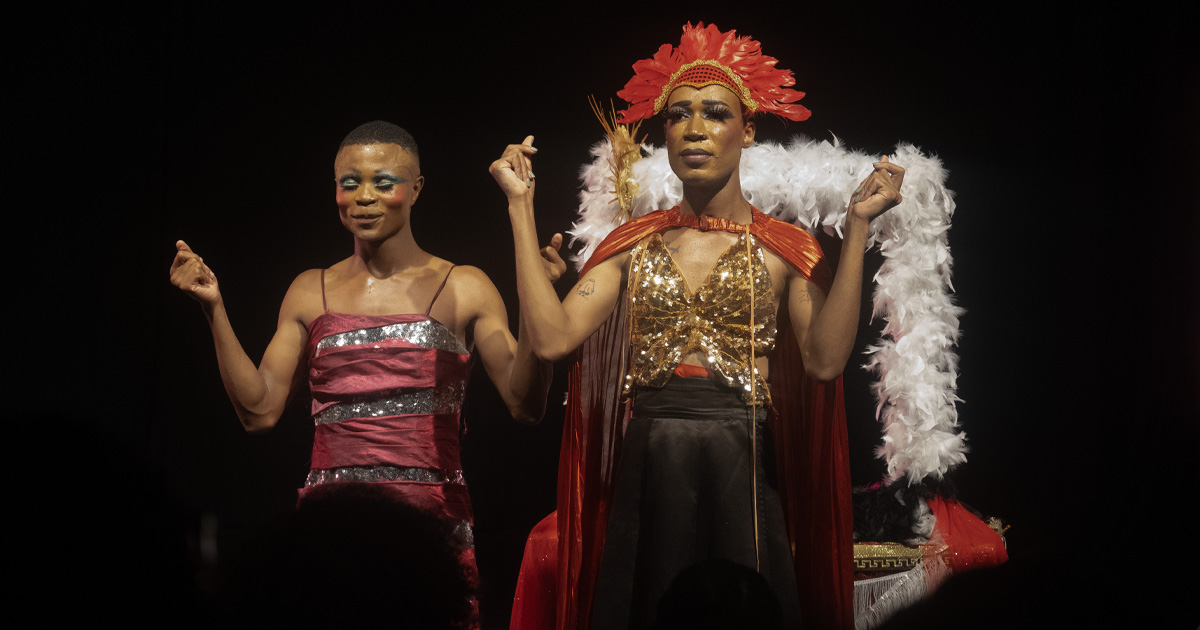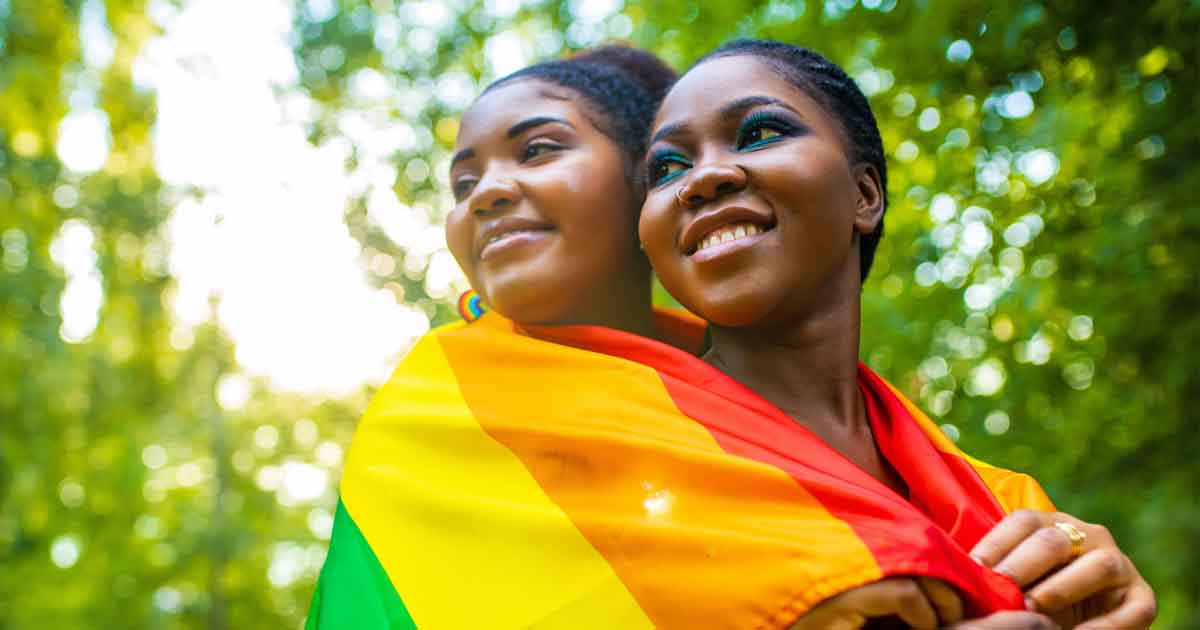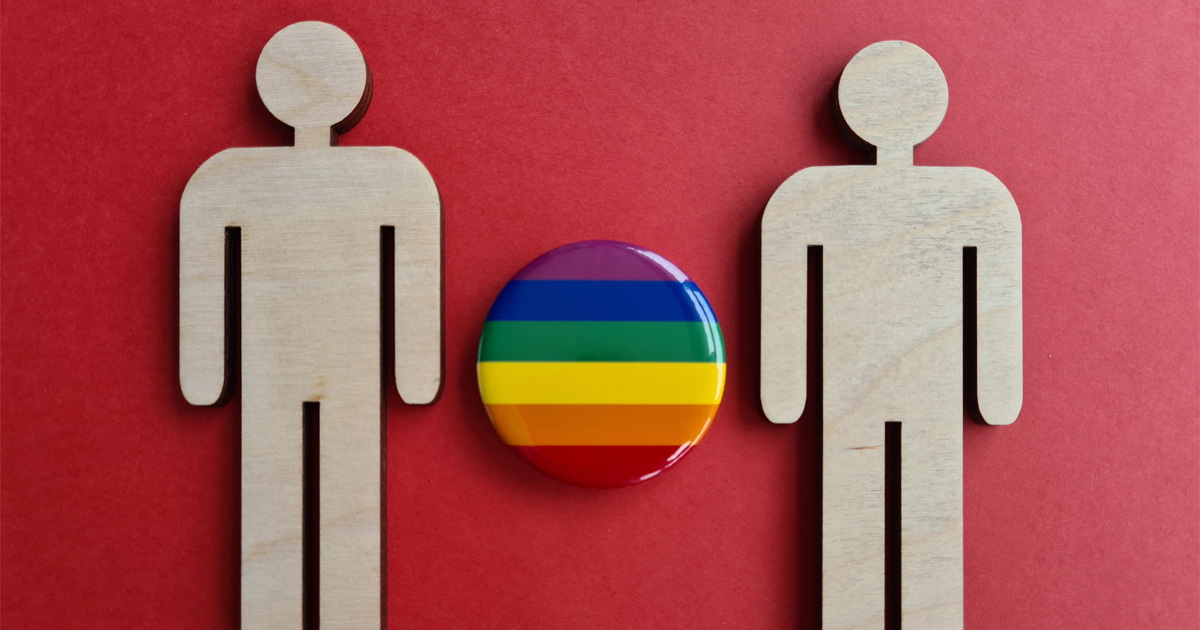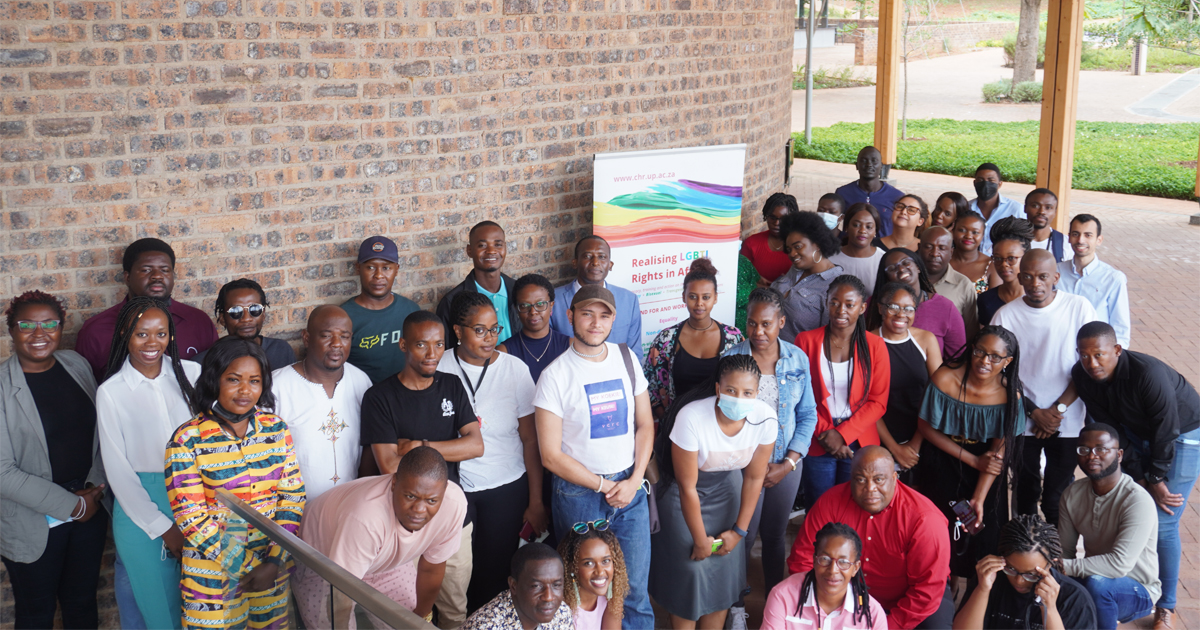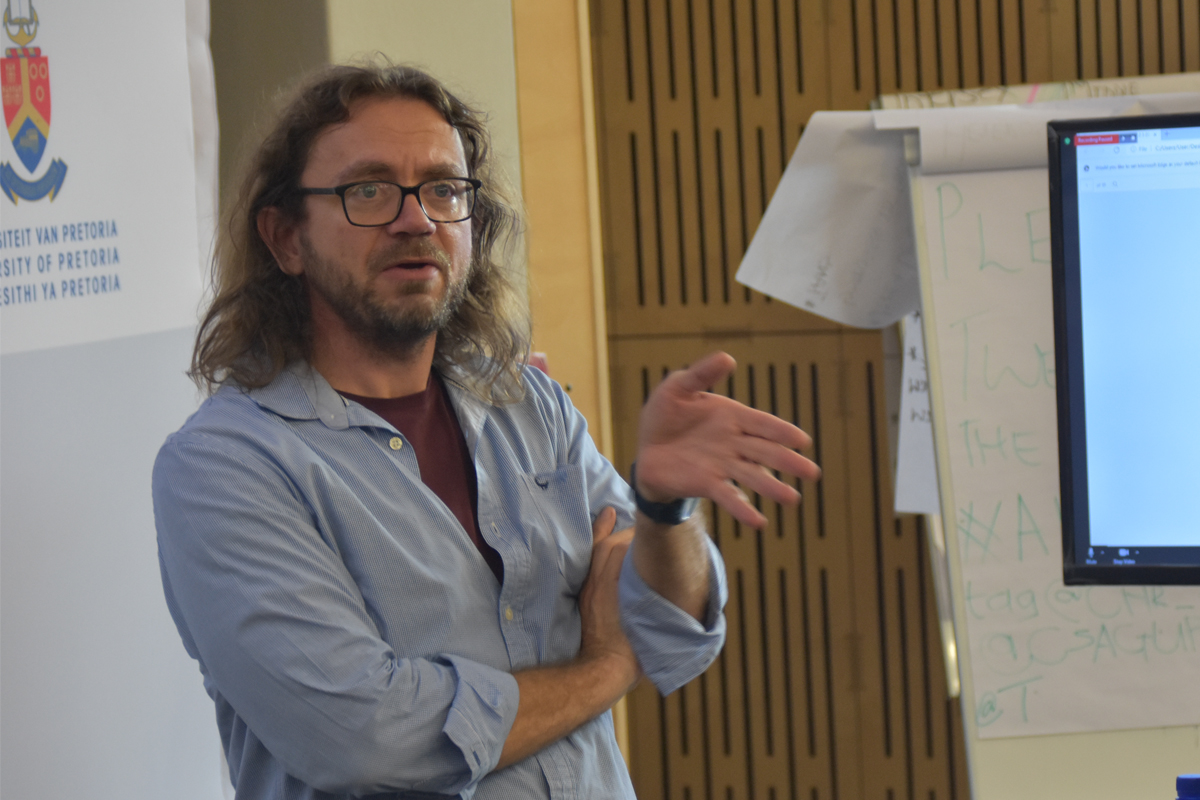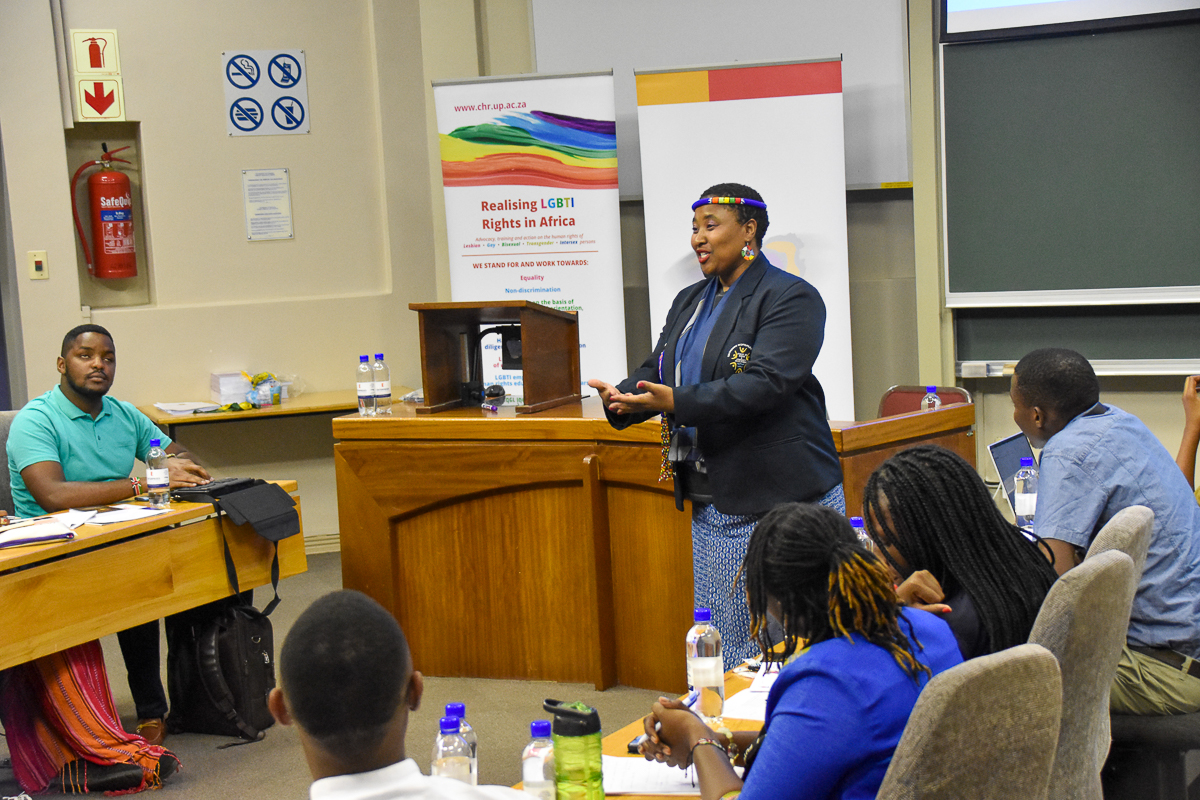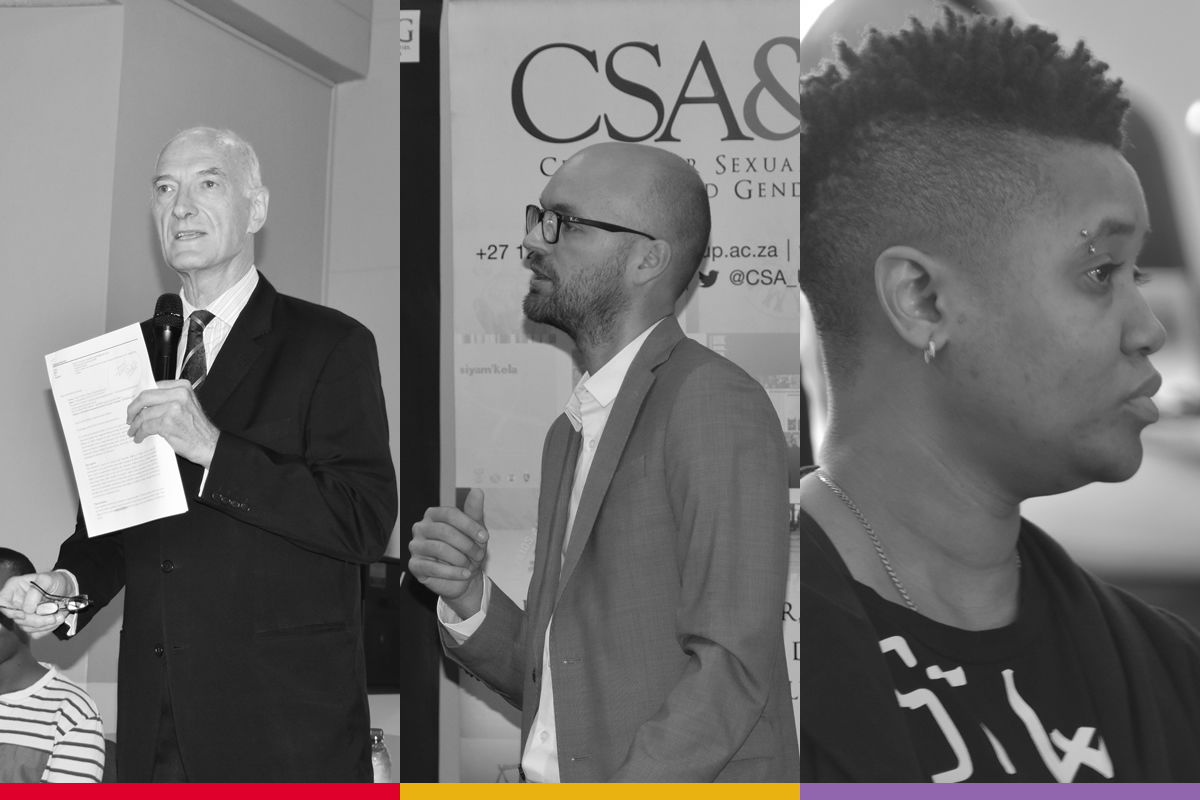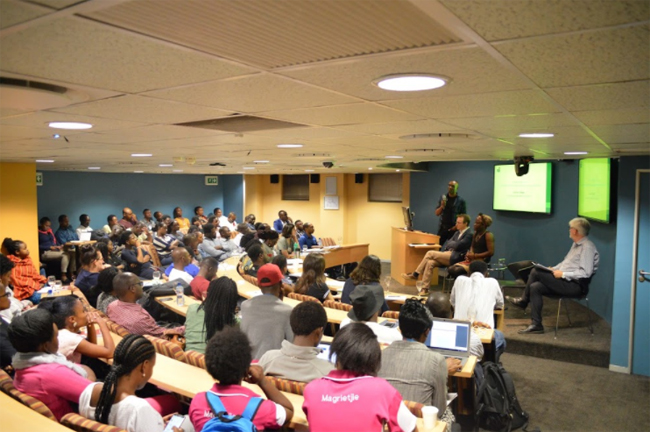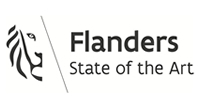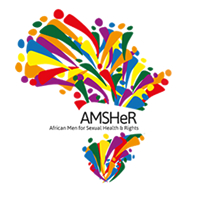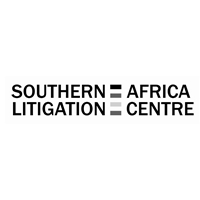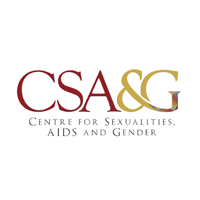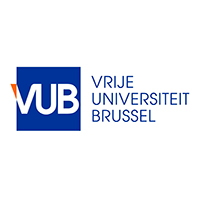
The Centre for Human Rights, University of Pretoria, will host a one-week intensive short course on sexual minority rights from 23– 27 February 2026.
Course date: 23 – 27 February 2026
Venue: Hybrid
Online (Zoom)
In-person (University of Pretoria)
Download Programme Download Brochure
About the course
The Advanced Human Rights Course on Sexual Minority Rights in Africa is a short course that introduces participants to basic SOGIESC (sexual orientation, gender identity and expression, and sex characteristics) concepts and a thematic and geographical exposition of challenges faced by LGBTIQ+ persons in Africa.
This course is designed for people who wish to obtain basic/introductory information, an understanding of the terminology, and a general appreciation of the problems faced by LGBTIQ+ persons in realising basic human rights in many African societies. Participants get to understand ways they can contribute to advancing the rights of LGBTIQ+ persons, especially at the national level. Participants typically include academics, police officers and magistrates (who often lack basic knowledge and are often accused of abusing LGBTIQ+ persons); and NGOs that do not work on sexual minority rights issues or that have only recently begun to do so and need capacity building. They may also include National Human Rights Institutions that can play an important role in countries where national governments are unsympathetic to LGBTIQ+ issues.
The Centre for Human Rights also hosts a capacity building workshop on sexual minorities in Africa, a more technical course designed to train LGBTIQ+ activists on how to engage with the African Union and United Nations human rights bodies - understanding the history, composition and working of these supra-national bodies, as well as how to bring cases/communications before these bodies. The workshop examines case law as well as legal and political strategies used in the past. This helps participants formulate their own strategies and develop networks. The workshop is interactive and includes practical exercises where participants receive training on the processes and procedures of AU and UN human rights bodies. They are also able to share experiences and inspire each other. Participants for the workshop typically include LGBTIQ+ activists and human rights defenders in general who, at least, have some experience of working at the national level. More information on applying for this workshop will be published on the Centre's website in due course.
Course content
The programme may contain elements of the following themes:
- Conceptual clarification of the terms ‘gay’, ‘lesbian’, ‘bisexual’, ‘transgender’ and ‘intersex’ (the origin of these and other related terms and their influence);
- Bio-medical data on homosexuality, and its interpretation;
- HIV and the emergence of ‘men-who-have-sex-with-men’ (MSM), MSM and the LGBTIQ+ movement, the risk of HIV infection to lesbians, bisexuals, transgendered and intersex persons;
- African tradition/culture and homosexuality (the ‘unAfrican’ debate, anthropological perspectives on homosexuality in traditional Africa);
- The approach to homosexuality of the major religious traditions (Christianity, Islam);
- Public opinion on sexual minority rights: media, popular culture and literature in Africa and sexual minority rights;
- A typology of human rights violations of sexual minorities in African states (attempts to address them; reasons for violations);
- Criminal law and LGBTIQ+ persons (sodomy laws, and the application of criminal law);
- Sexual minority rights under international law (ICCPR; Toonen case; Yogyakarta Principles; are LGBTIQ+ persons ‘minorities’ under international law);
- Domestic legal provisions affecting LGBTIQ+ persons in African states (eg criminalisation of same-sex relations);
- Strategies and best practices of litigation to vindicate the rights of sexual minorities (the role of civil society organs, media etc);
- Current case law development in African states;
- EU / Council of Europe and LGBTIQ+ Rights;
- Other international (UN) law and sexual minorities
- Solidarity and perspectives on sexual and gender minority rights beyond Africa
- Strategies for countering the anti-rights movement in Africa
Fees
The course will be offered in a hybrid format.
Participation in the course online is $150 (USD).
In person attendance is $250 (USD)
Scholarships
Participants wishing to attend physically are required to write a short motivation for attending the course in person. A limited number of scholarships are available. These scholarships are awarded on a very competitive basis.
Application procedure
Please note: Applications closed on 09 February 2026.
Important Notice:
A high proficiency in English is required to attend this course. All lectures and materials are in English. Prior to applying for this course, please read through the information on the practical Information and the payment details pages.
Documents to be submitted:
- Curriculum Vitae (short CV in PDF or Word document, maximum 3 pages, maximum 10 MB in file size)
- One Letter of Recommendation (PDF or Word document, maximum 10 MB in file size)
- Academic Records (students only) (combined in one PDF or Word document, maximum 10 MB in file size)
* Please note that in order to apply for any of the Advanced Human Rights Courses, you are required to use a Google Gmail account.
Application deadline
Applications closed on 9 February 2026.
If you do not hear from us within 5 days after applications have closed, please consider your application unsuccessfull.
Overview of previous courses
Contact
For more information, please contact:
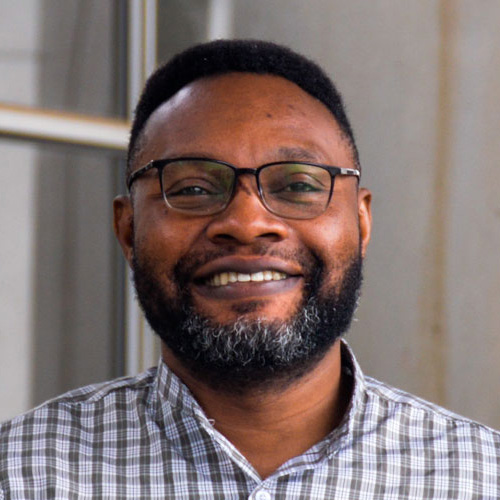
Tel: +27 (0) 12 420 4197
Fax: +27 (0) 86 580 5743
dennis.antwi@up.ac.za
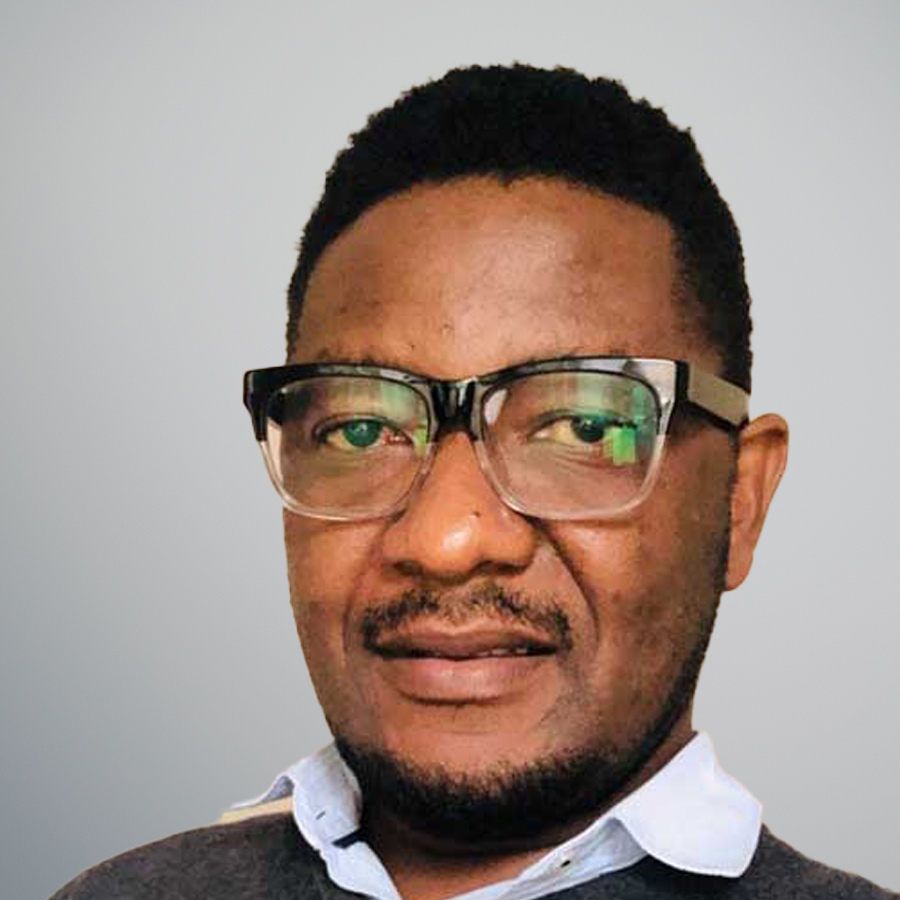
Tel: +27 (0) 12 420 4397
Fax: +27 (0) 86 580 5743
landilani.banda@up.ac.za

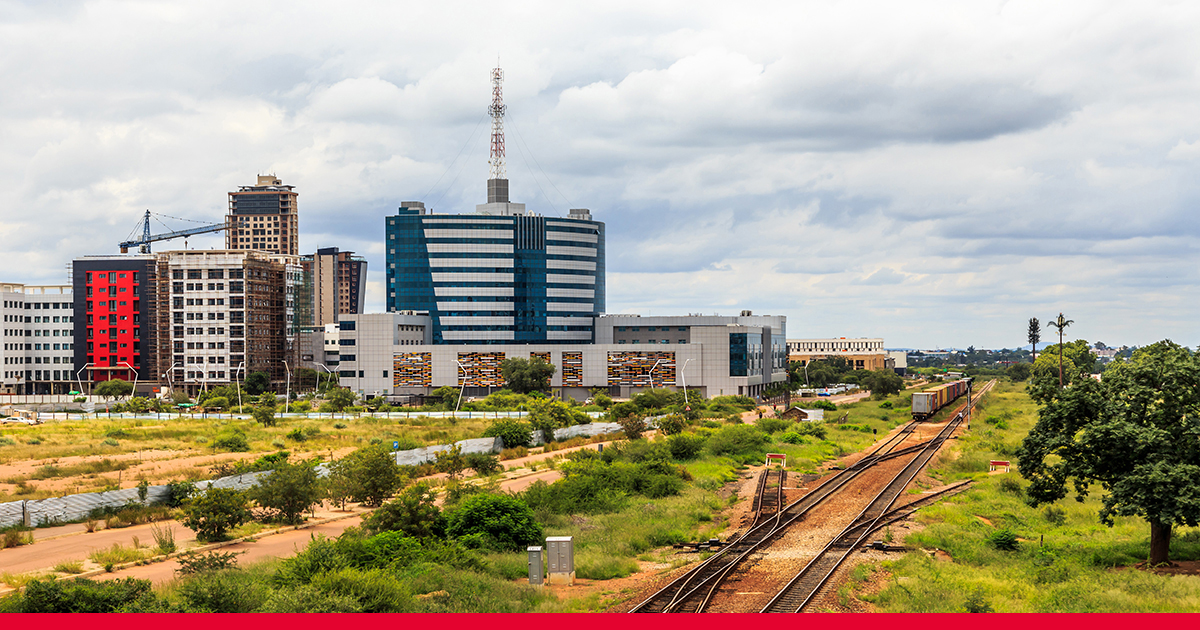 The Centre for Human Rights, Faculty of Law, University of Pretoria in partnership with the University of Antwerp, Belgium, annually
The Centre for Human Rights, Faculty of Law, University of Pretoria in partnership with the University of Antwerp, Belgium, annually The Centre for Human Rights, Faculty of Law, University of Pretoria and the International Center for Not-for-Profit Law (ICNL) annually
The Centre for Human Rights, Faculty of Law, University of Pretoria and the International Center for Not-for-Profit Law (ICNL) annually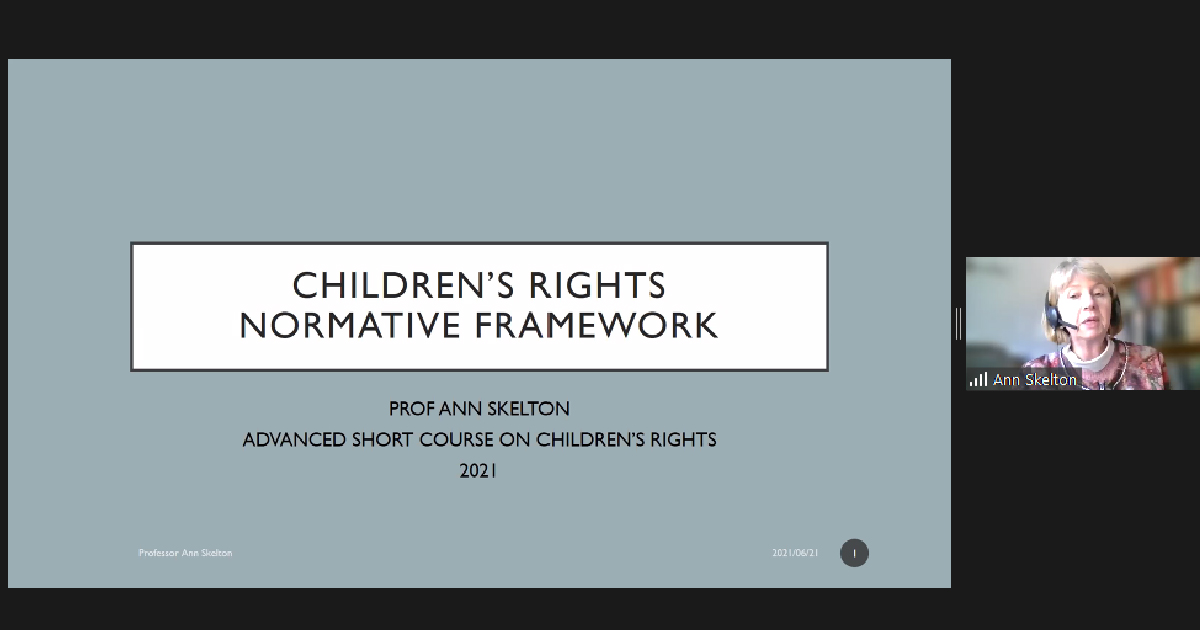 The annual Advanced Human Rights Course on Children’s Rights in Africa is currently underway. The course is hosted as a
The annual Advanced Human Rights Course on Children’s Rights in Africa is currently underway. The course is hosted as a The COVID-19 lockdowns, restrictions and regulations caused a momentary shuddering of the democratic criminal justice systems worldwide, including in Africa.
The COVID-19 lockdowns, restrictions and regulations caused a momentary shuddering of the democratic criminal justice systems worldwide, including in Africa. The Centre for Human Rights held a one-week intensive short course on judicial enforcement of socio-economic rights from 17 to
The Centre for Human Rights held a one-week intensive short course on judicial enforcement of socio-economic rights from 17 to From 8 to 12 March 2021, the Centre for Human Rights, University of Pretoria, hosted the Advanced Human Rights Course
From 8 to 12 March 2021, the Centre for Human Rights, University of Pretoria, hosted the Advanced Human Rights Course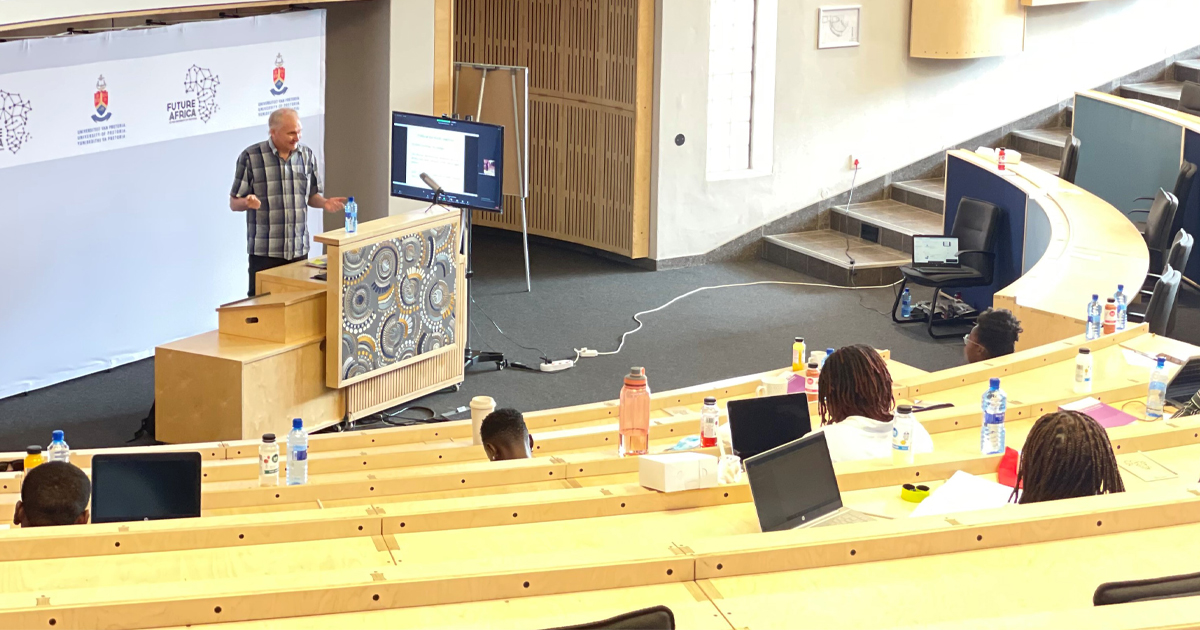 The annual Advanced Human Rights Course (AHRC) on the African human rights system in comparative perspectives in comparative perspectives is
The annual Advanced Human Rights Course (AHRC) on the African human rights system in comparative perspectives in comparative perspectives is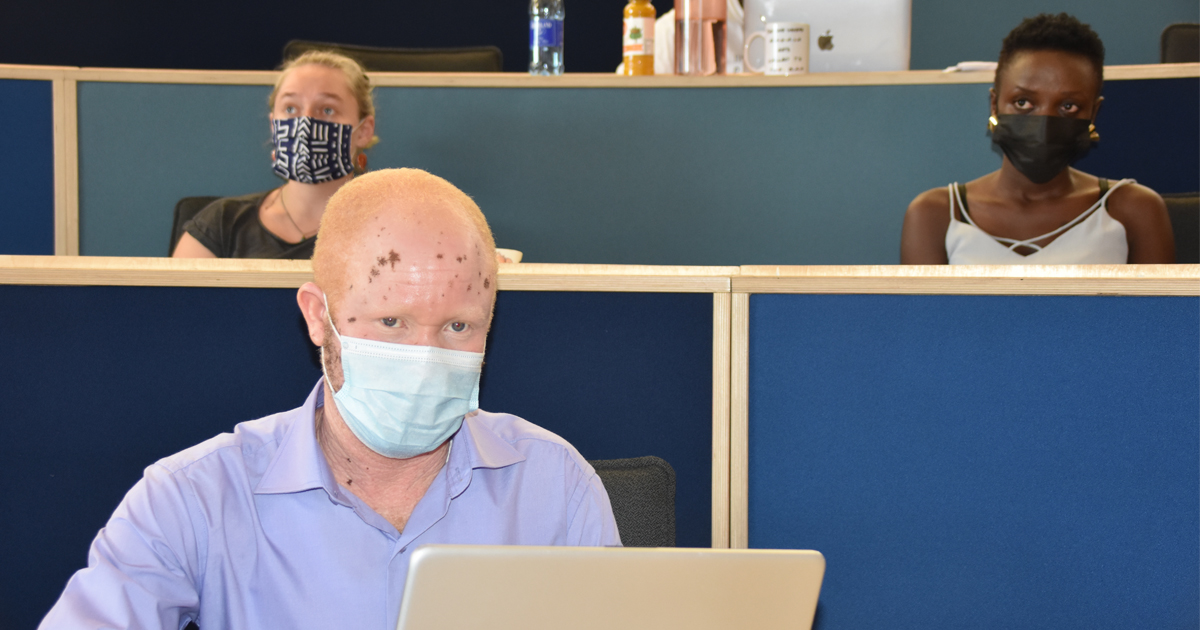 The Advanced Human Rights Courses (AHRC) and the Sexual Orientation, Gender Identity and Expression, and Sex Characteristics (SOGIESC) Unit at
The Advanced Human Rights Courses (AHRC) and the Sexual Orientation, Gender Identity and Expression, and Sex Characteristics (SOGIESC) Unit at